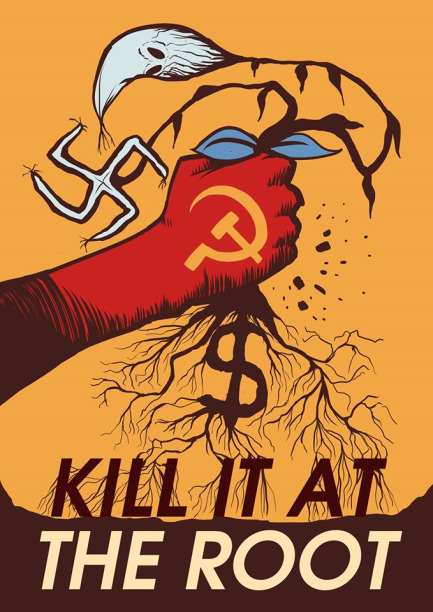- cross-posted to:
- chat
I am once again telling chapos to read the anthology of Trotsky excerpts, Fascism: What it is and How to Fight it. :trot-shining:
These paragraphs are especially relevant in a US context (emphasis added to the bolded bits):
In the epoch of the rise, the growth, and the bloom of capitalism, the petty bourgeoisie, despite acute outbreaks of discontent, generally marched obediently in the capitalist harness. Nor could it do anything else. But under the conditions of capitalist disintegration, and of the impasse in the economic situation, the petty bourgeoisie strives, seeks, attempts to tear itself loose from the fetters of the old masters and rulers of society. It is quite capable of linking up its fates with that of the proletariat. For that, only one thing is needed: the petty bourgeoisie must acquire faith in the ability of the proletariat to lead society onto a new road. The proletariat can inspire this faith only by its strength, by the firmness of its actions, by a skillful offensive against the enemy, by the success of its revolutionary policy.
TL;DR: if the working class is in a position of strength, it can win the support of petty bourgies, lumpen, and PMC (and peasantry, in countries where they still exist), the sort who would otherwise be attracted to fascism under conditions of capitalist decay.
Trotsky continues:
But, woe, if the revolutionary party does not measure up to the height of the situation! The daily struggle of the proletariat sharpens the instability of bourgeois society. The strikes and the political disturbances aggravated the economic situation of the country. The petty bourgeoisie could reconcile itself temporarily to the growing privations, if it arrived by experience at the conviction that the proletariat is in a position to lead it onto a new road. But if the revolutionary party, in spite of a class struggle becoming incessantly more accentuated, proves time and again to be incapable of uniting the working class about it, if it vacillates, becomes confused, contradicts itself, then the petty bourgeoisie loses patience and begins to look upon the revolutionary workers as those responsible for its own misery. All the bourgeois parties, including the social democracy, turn its thoughts in this very direction. When the social crisis takes on an intolerable acuteness, a particular party appears on the scene with the direct aim of agitating the petty bourgeoisie to a white heat and of directing its hatred and its despair against the proletariat. In Germany, this historical function is fulfilled by national Socialism (Nazism), a broad current whose ideology is composed of all the putrid vapors of disintegrating bourgeois society.
Poor socialist leadership (in the contemporary context, Trotsky meant the capital-C Communists, but this principle can be generalized) means fascism benefits by exploiting the resulting demoralization/dissatisfaction among the more lumpen/petty-bourgie/etc. layers, getting them to entertain fascist conclusions when socialism appears to be failing. The 3rd international's failures in western and central Europe allowed fascism to take hold there.

